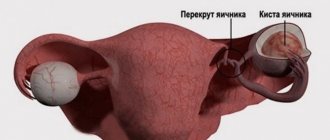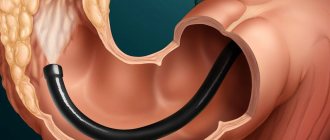May 27, 2019
Urology is a field of medicine that studies diseases of the urinary system, namely the kidneys, adrenal glands, bladder, urethra, and genital organs. It is a surgical discipline, that is, it mainly deals with surgical treatment. Since urology also combines related specialties, a urologist can specialize in seeing women (urologist-gynecologist) and men (urologist-andrologist). There are also separate specializations: pediatric urologist, urologist-gerontologist (sees older people) and urologist-oncologist.
Sometimes a urologist is confused with a nephrologist and a venereologist: what are the differences?
A nephrologist deals exclusively with the functions and diseases of the kidneys. A venereologist treats sexually transmitted diseases. Urology is a more general concept; a urologist can be called a generalist.
When is it necessary to see a urologist?
- For urinary incontinence
- For pain and burning during urination
- With frequent or too infrequent urge to go to the toilet
- If blood or pus is found in the urine
- When urine color changes
- For pain in the lower abdomen
If at least one of the above symptoms is accompanied by an increase in temperature, this means that an inflammatory process has started in the body. We recommend that you immediately make an appointment with a urologist in order to diagnose the disease in time and choose a treatment method.
What diseases does a urologist save women from?
Of course, many are interested in the issue of urology treatment in women. A urologist diagnoses and eliminates all types of diseases of the internal and external genital organs. In addition, it combats urinary disorders in women. Sexually transmitted diseases also fall under the purview of urology.
A woman undergoes an examination in a gynecological chair. Specialists should analyze the condition of the urethra and bladder. In addition, when using gynecological equipment, a woman may experience vaginal prolapse (lack of organs) or dryness.
What does a male urologist treat?
Men should contact a urologist for the following problems:
- Urolithiasis disease
- Enuresis (urinary incontinence)
- Prostatitis
- BPH
- Phimosis
- Varicocele
- erectile disfunction
- Infertility
At the appointment, the urologist visually examines the condition of the penis, scrotum, and inguinal lymph nodes. A rectal examination of the prostate gland is possible. I definitely recommend that the patient undergo blood and urine tests; in the future, if necessary, referral to ultrasound, MRI and other diagnostic methods is possible.
Additional subjective examination methods
Palpation of the anterior abdominal wall and lumbar region is also performed; The boundaries of the left and right kidneys are determined. Percussion of the area where the kidneys are localized (Pasternatsky’s symptom) to determine possible pain, followed by urine assessment to exclude signs of hematuria (blood in the urine).
Diagnostics in urology can be supplemented by obtaining a smear from the urethral canal to evaluate the discharge for inflammatory inclusions and sexually transmitted infections.
Digital examination of the prostate is carried out in three possible positions of the patient. Before the procedure, the patient is asked to urinate and squeeze the external urethra. A digital examination allows one to evaluate the size, symmetry of the gland’s lobes, consistency, protrusion of the gland into the intestinal lumen, or organ atrophy. The examination result is supplemented by microscopy and analysis of prostatic secretions obtained after stimulation of the gland.
Leading urologists of our clinic named after. Fronstein guarantee a sensitive attitude towards the patient, a high professional level, timely and early diagnosis of genitourinary diseases in men.
Diagnostic methods in urology
The main methods for detecting urological diseases and pathologies:
- Initial visual inspection
- Laboratory tests (smear for flora, bacteriological culture, urine test, spermogram, tissue biopsy)
- Ultrasound examinations (including TRUS - transrectal ultrasound examination of the prostate)
- Cystoscopy (examination of the inner surface of the bladder using an endoscope through the urethra)
- Escretory urography (x-ray examination)
- Computed tomography (CT)
- Magnetic resonance imaging (MRI)
Diseases of the urinary system, unfortunately, can overtake a person at any age. Ignoring alarming symptoms for a long time can result in unpleasant problems, including cancer, so do not delay your visit to the doctor. Take care of yourself and be healthy!
Urology. What it is?
Urology deals with diseases of the urinary tract in both men and women. The urinary tract includes the kidneys, ureters, bladder and urethra. But among other things, urology also covers the treatment of problems with the reproductive organs in men: the scrotum, testicles, penis. This fact demonstrates the considerable importance of this segment of healthcare.
Many people may have problems that a urologist can help solve, but here the question arises: which physician is best to turn to.
Are there harmful myths associated with STDs?
Of course, for example, oral sex without a condom is safe and diseases are not transmitted through it. They are transmitted, so protection should be taken care of in any case and checked regularly. According to international recommendations, if a person has two or more partners during the year, it is recommended to undergo annual screening for STDs.
Another one is that you can only get infected during sex. Some diseases can be contracted from a towel, from a toilet seat, and so on, that is, the sexual route cannot be called exclusive. Another thing is that the probability is, of course, lower, but it is there, especially if there are wounds, cracks, and so on. But there is no need to walk around and be afraid - basic hygiene, attentiveness and accuracy are enough.
There is another side to such myths - for example, that any contact is a 100% risk of getting sick. This is wrong. My favorite example is with gonorrhea: with a single unprotected contact with a sick woman, the probability of becoming infected is only 17%. This does not mean that it is worth the risk - it is always better to choose barrier methods of contraception if there is more than one partner.
Is it possible to reduce the risk of kidney stones?
The easiest way is to drink a lot of water; this is the most common recommendation at appointments. This generally prevents many health problems. The kidneys secrete about 1.5-2 liters of urine per day, but at the same time they pass up to 100 liters of liquid through themselves, so the fear of “flooding the kidneys” is not entirely justified, this is also part of the realm of myths - the kidneys have a gigantic working reserve. Moreover, if a person has one kidney removed, the second will take on all the work and cope. We recommend drinking enough water so that your urine is light or almost clear.
How is an examination by a urologist performed?
A urologist is a specialist who deals with problems of the urinary system. It is recommended to visit a urologist once a year or when the first symptoms appear. It is generally accepted that a urologist is a purely “male” specialist, but his patients can also be women.
Indications for consultation
You should make an appointment with a urologist if the following symptoms appear:
- frequent urge to urinate;
- pain in the lower back and abdomen;
- abnormalities of genital development;
- injuries of the reproductive system;
- change in the color or odor of urine;
- the appearance of blood in the urine or seminal fluid;
- swelling;
- pain when urinating.
Boys, starting from infancy, need to undergo regular preventive examinations.
Prevention
Preventive examinations by a urologist are mandatory, and in some cases are even established by law (for example, when a child enters kindergarten or a young man enrolls in military service). They can prevent the development of serious diseases and even save lives.
- The child should be shown to a urologist from birth, even in infancy. Then a specialist is contacted upon admission to kindergarten and school.
- Adult men over 25 years of age are also required to visit a doctor to maintain their sexual health and identify age-related changes in the reproductive system in advance. You can also detect sexually transmitted diseases.
- After 40 years, a urologist will be able to timely diagnose the development of diseases of the genital organs, prostate tumors and other ailments. The earlier they are detected, the easier it is to deal with them.
Organization of reception
There are urologists in public and private hospitals. Modern clinics provide patients with the opportunity to make appointments not only by telephone at the reception desk, but also online.
The urology office consists of two parts: in the first, the patient is introduced, symptoms are discussed, and a treatment plan is drawn up; in the second, you will need to undress so that the doctor can examine you. At a preventative visit, an examination may not be necessary if you do not have any complaints.
How is the examination carried out in men?
After consultation, the specialist begins the examination. First, it is necessary to determine the correspondence of the patient’s figure to his age, examine the hair on the body, the appearance of the breasts and nipples to assess the functions of the gonads.
Examination of the genital organs
The patient's genitals are examined in a lying and standing position. The specialist pays attention to the correspondence of the size of the penis to the age, the size and symmetry of the testicles, features of the head, and the appearance of the meatus.
If there are deviations from the norm, a smear is taken from the urethra and sent to the laboratory for analysis.
- Penis. The specialist studies the shape, length, and thickness of the organ. Possible deviations from the norm are most often associated with developmental anomalies, injuries and acquired diseases.
- Testicles. The doctor carefully palpates the scrotum and testicles to detect such ailments as dilated veins, an increase in the number of gonads, or a shrinkage of the testicle.
- Foreskin. The urologist evaluates the presence and size of the preputial sac. In this way, phimosis is found, which stimulates inflammatory processes. Diagnosis is carried out at the age of 1–2 years, when phimosis can be corrected without surgery, limited only to exercises.
- Head. The specialist evaluates the type of head, its inclination, plaque on it, shape, and so on. Examination of this organ allows you to identify cancer and infections.
- Meatus. Visually, the specialist examines the discharge from the meatus, the shape and location of the urethra.
- Prostate. The urologist is required to examine the prostate by palpation through the wall of the rectum. In this way, prostatitis is detected in young men, and adenoma in mature men.
How are women examined?
Women, as already mentioned, should also visit a urologist. The first examination should take place in infancy. The urologist examines the external genitalia for abnormalities.
Adult women should visit a urologist to detect urethral problems early. The examination is also carried out in a standing and lying position. The doctor visually assesses the condition of the genital organs and prescribes tests. If necessary, a vaginal swab is taken.
Consultation with a urologist is necessary in the following cases:
- the appearance of signs of urolithiasis;
- urinary disorders during pregnancy;
- kidney problems.
Instrumental examination
It is carried out in the form of an ultrasound of the kidneys and reproductive organs. The patient needs to drink a lot of water to fill the bladder. During the examination, the urologist uses CT and MRI to draw the most accurate conclusion.
How to prepare?
It is advisable to contact a specialist before the examination to find out in advance what is required of you. If this is not possible, it is enough to simply take a shower before going out, thoroughly cleansing the genitals.
In what cases should you consult a urologist?
Contact your doctor if you notice any of the characteristic symptoms. They are also referred to a urologist if they suspect the presence of diseases, for example, prostatitis or adenoma, kidney disease, infertility, pyelonephritis, and so on.
Treatment methods
The urologist selects the treatment method individually for each patient.
Conservative treatment
Allows you to eliminate the main symptoms and causes of pathology. This method may include assigning:
- injections of drugs to achieve quick results;
- drugs in the form of suppositories;
- tablets.
Sometimes the doctor may additionally prescribe a vitamin complex and physical therapy.
Surgery
Surgery may be necessary if certain diseases are detected.
Within the framework of the method, the following is carried out:
- removal of cysts and tumors;
- elimination of kidney prolapse;
- resection of the kidney and bladder.
Don't forget to get regular urological exams to stay healthy. Preventative intake will help prevent the development of serious diseases or stop them in the early stages.
Is it normal to have a small penis?
Fear related to size is one of the most common. Recently, colleagues conducted a survey - according to its results, it turned out that the average size of the penis is 21 cm. When the participants were asked to try to measure again and were taught exactly how, it turned out that the average length is still 13 cm. These are the average statistical figures - 12-16 cm - moreover, it is necessary to measure not just “from the abdomen”, but from the pubic symphysis. Some people have fat there - if you don’t measure it, then you can count less. Many people are dissatisfied with their appearance, and dissatisfaction in this area is also common, but this does not mean that there is a real reason for alarm and any serious measures. I am not a supporter of penis enlargement without indications.
There are also pathological deviations - there is the concept of “micropenis”, there is a hidden penis. In the vast majority of situations, a person can be helped - modern medicine is not about despair at all. There is a whole subsection of genital surgery in urology, these specialists who perform complex operations on gender reassignment, reduction, extension, enlargement, compression. To the point that you can make a new penis from the latissimus dorsi muscle. A man tenses a muscle and it’s as if he has an erection. I do not know this surgery, but I am familiar with similar specialists. There is almost always a solution that allows a person to be sexually active, even if it seemed that there was no chance - for example, with a traumatic loss of the penis.
Prostate adenoma is a death sentence and will it only get worse?
No, absolutely not. Most men after 40–50 years old develop an adenoma to one degree or another, and by the age of 90, all of them do. But in only about a third of them it becomes a disease; for the rest it is, let’s say, a process of growing up.
Adenoma is not a death sentence; most men do not even require treatment and observation is sufficient.
For most people who do need to be treated, there are solutions for conservative treatment of this disease. And only 25-30% of this third may ultimately require surgery.
Do I need to shave before going to the urologist?
Many patients are interested in preparing for a urological examination.
There are three main recommendations that should be followed by representatives of both sexes:
- immediately on the day of the visit to the urology department, take a shower using suitable hygiene products;
- 2-3 days before the examination, stop eating foods that cause flatulence (brown bread, dairy products). It is also necessary to exclude alcohol and strong medications (if possible);
- the day before your appointment, refrain from sexual contact. This will allow the doctor to take some tests during the initial examination, which will speed up the diagnosis.
Other preparatory procedures, such as shaving the pubic area and external genitalia, are not necessary. If additional examinations (for example, ultrasound) are prescribed, the specialist will tell you in detail about the specifics of preparing for them.









